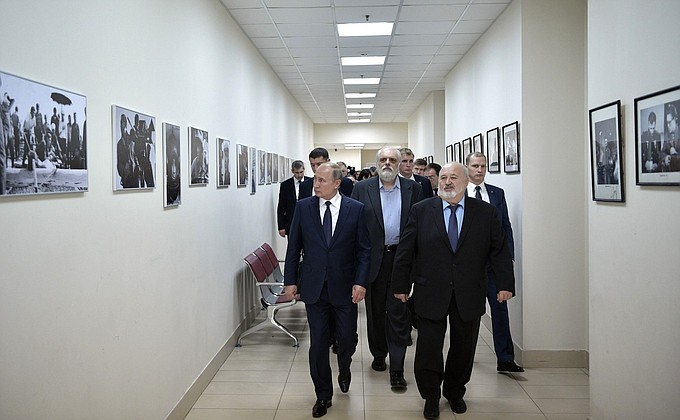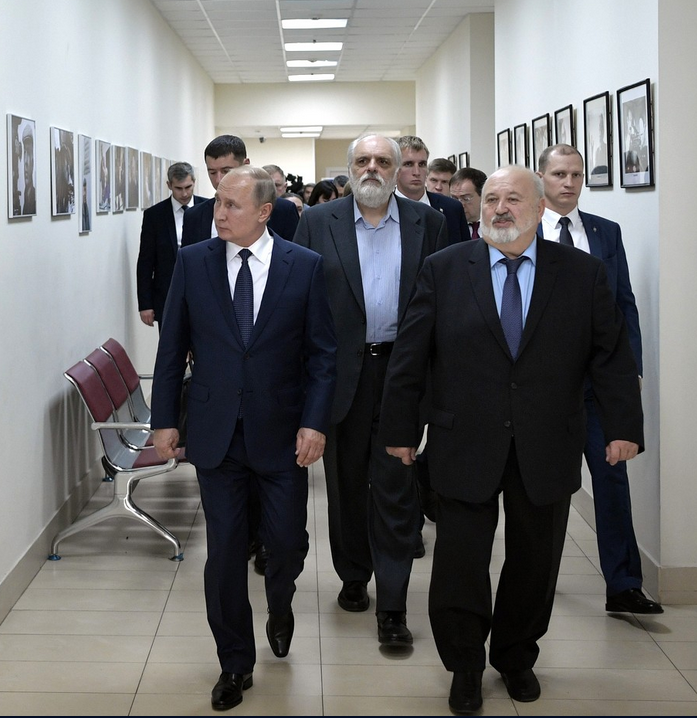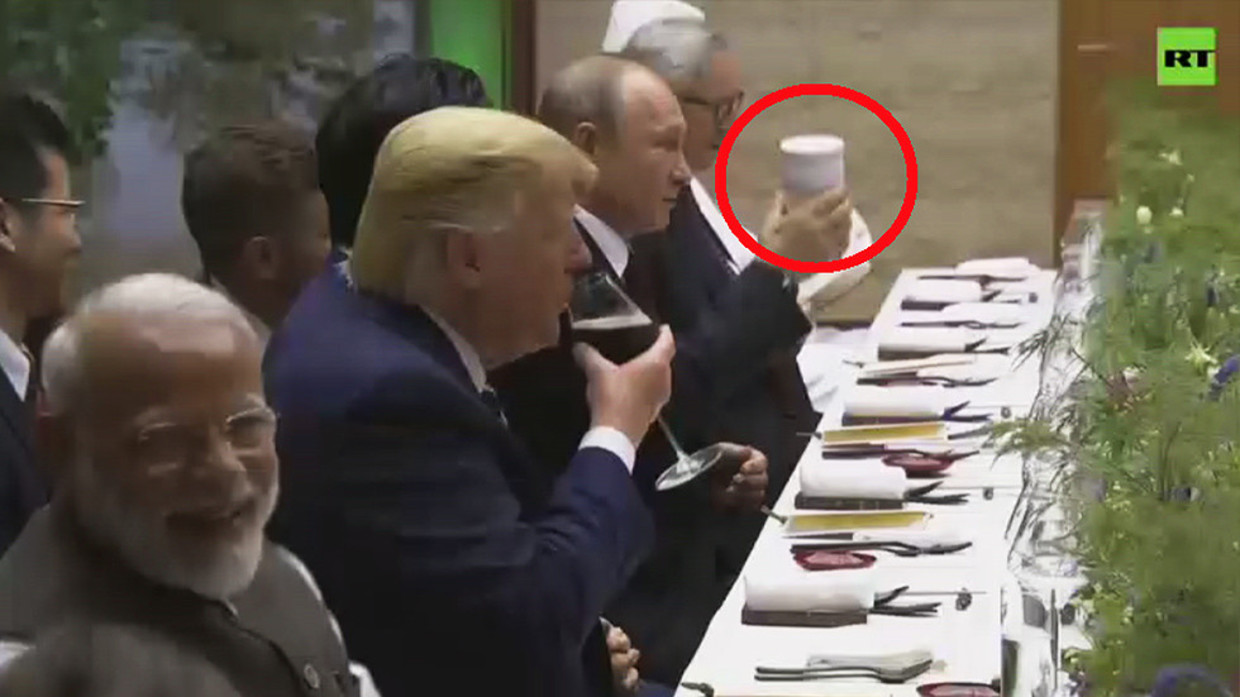Here is my first point regarding the Minsk Agreements and disbanding, as you said, administrative bodies in the unrecognised republics.
Former president Petro Poroshenko who represented Ukraine at the Minsk talks, which were followed by the Minsk Agreements, insisted on having this document signed by the leaders of these two unrecognised republics. They just grabbed me by the throat, all three of them, and representatives of these unrecognised republics refused to sign. I am giving you, so to speak, the inside facts about our talks in Minsk. However, we managed to persuade them, and they signed the document. Thus, Ukraine itself recognised the existence of these authorities. This is the first part of the Ballet de la Merlaison, so to say.
The second part is that the elections were held there, and the people cast their votes. This, I believe, is a very democratic way of organising government bodies.
Third, the Minsk Agreements themselves outline explicitly the rights of these republics, and what they are entitled to claim. Everything is spelled out there about the language, the local police, and so on.
The next aspect has to do with what it is all about, and I am getting to the controversial part. I will not hide anything, and there is no need to do it. People in both Russia and Ukraine must know what these agreements are about.
There is a clause about withdrawing mercenaries and foreign troops and closing the border. Under the Minsk Agreements, the process of closing the border is to begin on the second day after an election takes place, and to be completed only after an inclusive political settlement is achieved, including amendments to the Ukrainian Constitution and these republics acquiring the rights as set forth in the Minsk Agreements. As soon as this is done, the border can be completely sealed.
Finally, let me respond to the question about the withdrawal of foreign troops. There are no foreign troops there. Yes, there are local militias, local self-defence forces staffed with local residents. I get questions all the time: Where did they get tanks or heavy artillery? Look, conflicts and hostilities of all kinds are unfolding in many hotspots around the world, involving tanks, artillery, etc. Where do they get them? Probably from those government agencies that sympathise with them. But let me emphasise that these weapons are theirs, not foreign.
As for the mercenaries, I have just said in Paris that there are French and Germans fighting there on both sides. We must address this issue of mercenaries, but they are not the bedrock of these armed groups.
You know what the main problem is? I will be completely honest with you. The most important problem is that there is a lack of willingness to resolve this question through dialogue with the people. We have yet to see any willingness to move in this direction, instead of trying to create favourable conditions for resolving the problem by force using tanks, artillery and air power. I said: air power was used. And the current President of Ukraine replied: What air power? He did not even remember or did not know this. But they did use air power, you see?
As soon as we, or rather the Ukrainian leadership, abandon what I believe to be a completely misguided approach to resolving this problem and move into dialogue mode, this is when there will be a path towards a solution. It is stated in the agreements that they need to restore economic and other infrastructure, but instead they just cut off this part of the country from the Ukrainian territory by imposing a blockade. Was Moscow the one who imposed this blockade? The Kiev authorities were the ones who did it.
However, we are seeing some positive shifts in this sphere, at least I hope we do. As you already know, there are some changes for the better there. At least there are crossing points, and the demining effort is underway. This is not enough. A lot has to be done to improve the lives of the people who live there. But it can be done.
If we proceed from this premise and focus on finding common ground and promoting dialogue, the problem will be resolved. If attempts to strangle them by force continue, I do not think that it can be done. There is a saying that people in Donbass never yield under pressure. It definitely has a ruffian and aggressive side to it, but this is how people feel deep inside. People who live there have a sense of pride, so this problem is unlikely to be resolved by force.
The gas war. You mentioned three billion. Let me point out that part of our reserve money from the Russian National Welfare Fund is invested in Ukrainian bonds: $3 billion, exactly. There is a court ruling from London on this, but it is not fulfilled.
Speaking about gas relations, it is a complicated and sensitive issue. We want to solve this problem. As someone who has a degree in law, I believe that this ruling of the Arbitration Institute of the Stockholm Chamber of Commerce is not legal but more likely political. Here’s one of the grounds for this ruling (everyone here will find it strange, too, but it is interesting): “…due to the difficult economic situation in Ukraine.” That is nonsense. But it is written there. They should have refrained from writing such a phrase.
Well, we have the court decision, it is true, and we must proceed from this. We will proceed from this and look for a solution that would suit everyone, including Ukraine, while preserving transit through Ukraine, despite the construction of new facilities, such as Nord Stream 1, Nord Stream 2, and TurkStream. The question is what the volume of transit and contract duration will be.
Let me also note that we are not going to sign any contract to stop transit later. No, we are interested in this, we want to do this; it is a good route.
By the way, the Ukrainian route to Europe is longer than via the Baltic Sea. It is longer and more expensive for us. But it is a good and well-known route to Central and Southern Europe, and we are ready to preserve it. We would also be ready to provide Ukraine with a gas discount of 20–25 percent, as I have already mentioned, by the way. It can be done.
This would also mean decreasing costs for the end consumer instead of increasing them as you are planning now. Starting from January 1, 2020, all the discounts will be cancelled, as far as I know, and the average gas price will be $300 for all categories of consumers, including individuals.
I think we will come to an agreement. By the way, we are already making headway. We will try to make Ukraine happy with the agreement, too. We do not want escalations in the energy sector that can be used to affect the situation in Ukraine.
We are interested in Ukraine getting the resource properly, so that our consumers in Europe are calm about us having normal relations with our neighbours and that everything goes as planned.







